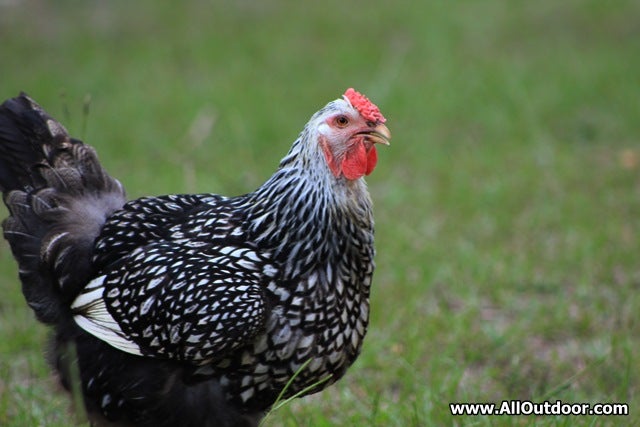Two Ways to De-Stress Your Chickens
Kevin Felts 03.01.17

McMurray Hatchery has an excellent write-up on ways to reduce stress in your chicken flock. Some of these I have experienced first hand and have seen how stress can contribute to bad behavior.
The list from McMurray:
- Water problems.
- Inadequate nutrition.
- Excessive or Rough Handling.
- Fear of dogs or predators.
- Overcrowding.
- Parasites and disease.
- Extremes of Temperature.
From that list, overcrowding and fear of predators has caused a great deal of stress in my chicken flock.
Overcrowding
Chickens need their personal space. Just like people, if chickens are crowded they develop social problems. They may start pulling feathers from other chickens, eating eggs, start bullying other chickens, etc.
Chickens need at least:
- One square foot on the roost.
- Two to three square feet in the coop.
- Ten square feet in the run or chicken yard.
Those numbers are a bare minimum. The more room you give chickens they better off they are. Chickens are foragers. They take great joy digging through leaves, grass, or pine straw looking for bugs and seeds. The more they can roam and forage without being on top of each other, the happier chickens are.
Predators
Want to see chickens stress out? Let a dog get after the flock or a hawk fly over. All it takes is one chicken to sound the alarm and they all go running for cover.
In the case of a dog, I have seen chickens hide and not come out for hours. I have even see chickens play dead so the dog would ignore them. As long as the chickens are running, the dog will chase them.
A few weeks ago one of my dogs got a wild hair and decided to chase the flock. Several chickens went into hiding and did not come until several hours later. Several of the chickens were not acting right for two days after the chase.
Twice a year hawks migrate north or south. Chicken stress will increase as hawks are migrating.
Work to Reduce Stress
Chickens are funny creatures. They do well in a wide range of situations and environments but can develop stress with the wrong conditions.
When the flock does become stressed, bad behavior may develop. The bad news, even when the issues that caused the stress are fixed, the bad behavior can stay.
I had a Silver Laced Wyandotte that started feather pulling. It would walk up to another chicken, reach over and pull a feather out of the victim. The victim would get upset and run away. The Wyandotte would then look for another victim.
The absolute best way to prevent bad behavior is to look for things that stress the flock and prevent the stress before bad habits develop.